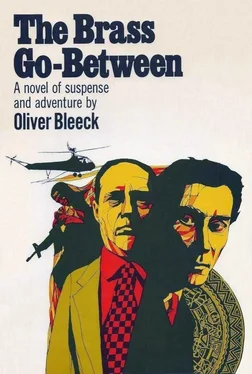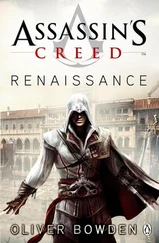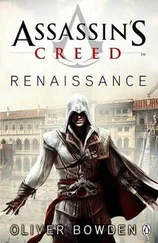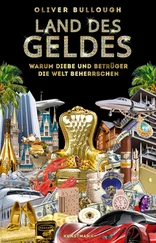Oliver Bleeck - Brass Go-Between
Здесь есть возможность читать онлайн «Oliver Bleeck - Brass Go-Between» весь текст электронной книги совершенно бесплатно (целиком полную версию без сокращений). В некоторых случаях можно слушать аудио, скачать через торрент в формате fb2 и присутствует краткое содержание. Город: New York, Год выпуска: 1969, Издательство: William Morrow, Жанр: Детектив, на английском языке. Описание произведения, (предисловие) а так же отзывы посетителей доступны на портале библиотеки ЛибКат.
- Название:Brass Go-Between
- Автор:
- Издательство:William Morrow
- Жанр:
- Год:1969
- Город:New York
- ISBN:нет данных
- Рейтинг книги:3 / 5. Голосов: 1
-
Избранное:Добавить в избранное
- Отзывы:
-
Ваша оценка:
- 60
- 1
- 2
- 3
- 4
- 5
Brass Go-Between: краткое содержание, описание и аннотация
Предлагаем к чтению аннотацию, описание, краткое содержание или предисловие (зависит от того, что написал сам автор книги «Brass Go-Between»). Если вы не нашли необходимую информацию о книге — напишите в комментариях, мы постараемся отыскать её.
Brass Go-Between — читать онлайн бесплатно полную книгу (весь текст) целиком
Ниже представлен текст книги, разбитый по страницам. Система сохранения места последней прочитанной страницы, позволяет с удобством читать онлайн бесплатно книгу «Brass Go-Between», без необходимости каждый раз заново искать на чём Вы остановились. Поставьте закладку, и сможете в любой момент перейти на страницу, на которой закончили чтение.
Интервал:
Закладка:
The greed was back on Ogden’s face. His wet lips moved, making little smacking noises, and his eyes squinted at me as if I gave off some blinding but irresistible glow. “The thieves don’t have to be around after it’s over,” he said, running his words together. “That’s the beauty of it. They don’t have to be around to complain.”
I could only stare at him, at the wet lips and the squinted eyes and the hunched, almost supplicating stance. “I believe you’d do it,” I said. “Goddamn, I believe you’d do it.”
He looked around the lobby once more. It was an almost furtive glance. “I’m fifty-three years old, St. Ives, and I want in on this. I’m gonna retire in a couple of years. A hundred and twenty-five grand would make it livable.”
“Get it from your whores, Ogden. Not from me.”
“I’m cutting myself in.”
“No, I don’t think so.”
“I’ve got a kicker.”
“I thought you might.”
“You see, St. Ives,” he said in a hoarse whisper after conning the lobby again. “I know who the thieves are.”
It was his exit line and he had been working up to it all evening. He grinned at me with all of those terrible teeth, nodded a couple of times, happily, I thought, turned and strode across the faded lobby, through the door, and out into the summer night.
“The elevator, Mr. St. Ives,” Charlie called from the desk. “It ain’t working.”
Chapter fourteen
It was raining when I awakened at seven the next morning, a hard stinging rain whose drops committed mass suicide against my ninth-floor window where I stood and watched while the water boiled on the two-burner stove for instant coffee. Armed with the coffee and the day’s first cigarette, I picked up the phone and called Eastern Airlines, which answered on the fourteenth ring. All flights to Washington had been canceled. It was raining hard in Washington too. It was probably raining all over the world.
That left the bus or the train. I called the Pennsylvania Central Railroad and the man who answered on the twenty-second ring was indifferent about whether I ever got to Washington, or it may have been that he was preoccupied with what kind of cake his great-great-granddaughter would serve when he got home that night to celebrate his ninety-second birthday. He finally admitted, after some coaxing, that there was a train leaving for Washington at eight that morning and if I were nice, he might even sell me a ticket.
I called down to the desk and got Eddie, the day bellhop. “It’s worth two bucks if you’ve got a cab waiting for me when I get downstairs in ten minutes,” I said.
“Jesus, Mr. St. Ives, I’ll get all wet.”
I sighed. “Three bucks.”
“Okay. Three bucks. By the way, that horse you picked the other day.”
“What about it?”
“It didn’t win.”
“Thanks.”
“Don’t mention it. You want to get down on something today?”
“No time.”
“You want I should pick one for you?”
“The cab, Eddie.”
I dressed in four minutes, packed a shirt, underwear, socks, and toilet articles into an overnight bag in two minutes, added a fifth of Scotch, waited for the miraculously repaired elevator for a minute, and was in the lobby at the desk asking for the suitcase nine minutes after I had talked to Eddie. I was also unshaved, unwashed, and unhappy.
The bellhop had somehow managed to find a cab. “I got all wet,” he said as I handed him three dollars. It was as close to thank you as he ever got. The cab driver grunted when I told him where I wanted to go, then mumbled to himself all the way to Penn Station. It took fifteen minutes to go the mile which, on a rainy morning in Manhattan, might have broken some kind of speed record. At seven-forty I queued up at the ticket counter behind a woman who wanted to take a train to Cutbank, Montana. She didn’t want to go today, and she didn’t know whether she would leave next week or the week after, because she wasn’t sure when her daughter’s baby was due, but she thought that she’d get all the information now and decide later, after she heard from her daughter. The man behind the counter became interested in her story and they gossiped about babies for a while and then he thumbed through some thick black books which told him whether a train went through Cutbank. After he figured out her route and she wrote it down they chatted some more, this time about the weather. I didn’t think that he was the same man whom I’d talked to over the phone because he wasn’t much over seventy-five.
When the Montana-bound woman finally left, the man behind the counter looked at me suspiciously, as if I wanted to buy a ticket or make him an indecent proposition. I think he would have preferred the proposition.
“Washington, a parlor seat.”
“Don’t know if I got one left,” he said, glancing up at the clock and then over at his rack of tickets. “You’re a little late, you know.”
“It’s all my fault.”
“Parlor car, huh. That costs more’n coach.”
“I know.”
“You still want it?”
“I still want it,” I said, not even yelling.
“Only got one left.”
“I wouldn’t want to run you short.”
“Coach’d only cost you $10.75. Parlor cost you $19.90. That’s a lot of money.”
“I just came into an inheritance.”
“Huh,” he said, and slid the ticket over to me as I handed him a twenty-dollar bill. “Look after the pennies, I say, and the dollars will take care of themselves.”
“You think that up all by yourself?” I said as he slid my dime to me.
“Been saying it all my life.” He looked at the clock again. It was three minutes until eight. “If you hurry,” he said comfortably, “you might still make it.”
I hurried, the fifty-eight-pound suitcase banging against my right knee. There was really no need. The train was ten minutes late in pulling out.
The last train ride I took was the Trans-Europ-Express from Cologne to Paris. The food had been good, the service excellent, the ride fast, and the track smooth. The Pennsylvania Central Railroad offered none of these. I had paid $8.15 extra for the privilege of sitting in a chair that swung 360° so that I’d miss none of the megalopolitan mess that was the eastern seaboard of the United States. There were some factories to look at, some junk yards, several vistas of rather interesting slums, and one cow.
I’m not sure when it was that American railroads went to the bad. Some claim that it started as far back as the twenties, but it was probably just after World War II when they began building super-highways and you could buy a car again and an airplane ride was no longer much of an adventure. It must have been a gradual decline. The coaches and the Pullmans that wore out were junked and not replaced. The crack train became a joke. The help got old and died and nobody much wanted to work for the railroads anymore. Then suddenly, sometime in the mid-sixties, the country awakened to learn that its skies and highways were choked while its rails were empty. At least of passenger service. Between Washington and New York they finally got one new high-speed Metro-liner running, but only once a day, and it was supposed to make the 227-mile trip in two hours and fifty-nine minutes — an hour faster than the Greyhound bus. Someday they may even run it all the way up to Boston.
Meanwhile, in car or bus, you could creep along highways that were built for the traffic of the early fifties or go by planes that stacked up for hours over airports that turned obsolete as soon as they were completed.
Many of the good ones were gone, I thought. The Commodore Vanderbilt and the 20th Century Limited, for instance. Even the Wabash Cannonball. Yet elsewhere in the world trains were still running, most of them on time. You could go from Tokyo to Osaka, 320 miles, in three hours and ten minutes on the New Tokaido Line. The Blue Train still ran luxuriously from Johannesburg to Capetown, and on the Rheingold you could go from Amsterdam to Geneva, 657 miles, in a little more than eleven hours and dictate to a secretary who spoke four languages while you stared out the window at the castles on the Rhine. I doubted that I could even get a decent cup of coffee on the Penn Central.
Читать дальшеИнтервал:
Закладка:
Похожие книги на «Brass Go-Between»
Представляем Вашему вниманию похожие книги на «Brass Go-Between» списком для выбора. Мы отобрали схожую по названию и смыслу литературу в надежде предоставить читателям больше вариантов отыскать новые, интересные, ещё непрочитанные произведения.
Обсуждение, отзывы о книге «Brass Go-Between» и просто собственные мнения читателей. Оставьте ваши комментарии, напишите, что Вы думаете о произведении, его смысле или главных героях. Укажите что конкретно понравилось, а что нет, и почему Вы так считаете.












